
To kick off Dia de los Muertos, here are some musings about death—in fiction (mostly books). There are some spoilers included though I’ve tried to minimize specifics.
I’ve been reading a good deal of fiction lately, and I was in the middle of a book when I realized that it didn’t matter what sort of situation the author put his character in: I would never be convinced that he was actually in danger of dying.
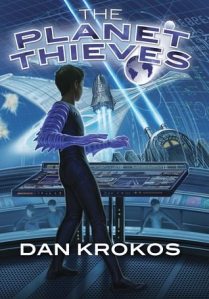 This particular book was The Planet Thieves by Dan Krokos, a middle grade sci-fi book about a bunch of kids who wind up in charge of a spaceship in the middle of a battle with aliens. It was actually a fun read (which owes something to Ender’s Game, in my opinion) and I’m sure the intended audience would also find it entertaining. There’s a scene near the end in which Mason, the main protagonist, is pretty much doomed. He’s flying towards his death, having performed a heroic sacrificial act, and shuts his eyes as the chapter ends.
This particular book was The Planet Thieves by Dan Krokos, a middle grade sci-fi book about a bunch of kids who wind up in charge of a spaceship in the middle of a battle with aliens. It was actually a fun read (which owes something to Ender’s Game, in my opinion) and I’m sure the intended audience would also find it entertaining. There’s a scene near the end in which Mason, the main protagonist, is pretty much doomed. He’s flying towards his death, having performed a heroic sacrificial act, and shuts his eyes as the chapter ends.
But of course, he’s not dead. And I didn’t buy it for a second, not only because I knew the book still had several pages left, but because—and this is what really hit me—Krokos isn’t going to kill off his main character. Sure, some characters die early in the book when the aliens first board the ship, but most of them are captured and only one death is played up as significant to the characters we know. They served as redshirts: See? These aliens mean business. People die. Except from then on, none of the main characters, the ones with names and personalities, die. Oh, they face a lot of dangers, get shot at, crash spaceships, and so forth, but despite all the nameless death they all end up safe and sound at the end.
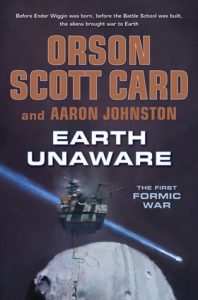 Contrast that to Earth Unaware, a book about the First Formic War in the Ender’s Game universe by Orson Scott Card and Aaron Johnston. (Yes, I know Card is a controversial subject and I debated even mentioning this book, but I was reading a bunch of alien-related novels at the time. That’s a conversation for another time.) In this one, characters are introduced and fleshed out, and then they die throughout the book. Lots of them. Hey, this is deep space, and this is when the Formics show up. It’s dangerous. If you go on a suicide mission, there should be a good chance that you don’t come back. Card and Johnston understand this, and it makes the dangerous scenes more tense, knowing that some of these characters that you care about may not make it back alive.
Contrast that to Earth Unaware, a book about the First Formic War in the Ender’s Game universe by Orson Scott Card and Aaron Johnston. (Yes, I know Card is a controversial subject and I debated even mentioning this book, but I was reading a bunch of alien-related novels at the time. That’s a conversation for another time.) In this one, characters are introduced and fleshed out, and then they die throughout the book. Lots of them. Hey, this is deep space, and this is when the Formics show up. It’s dangerous. If you go on a suicide mission, there should be a good chance that you don’t come back. Card and Johnston understand this, and it makes the dangerous scenes more tense, knowing that some of these characters that you care about may not make it back alive.
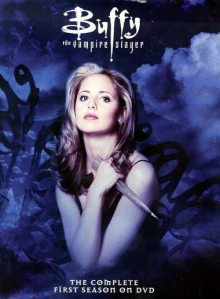 It brought to mind Joss Whedon, too. Now, he’s making TV shows and movies instead of writing books, but he also wasn’t averse to killing off characters. Sometimes the deaths were meaningful and story-shaped, following a sort of hero’s journey. And sometimes they were unexpected and jarring, like when a significant character dies not from any attack but from natural causes, forcing the characters (and the viewers) to wrestle with the idea that death isn’t always accompanied by portentous omens or enlightening explanations. Sometimes it’s just confusing and painful and raw.
It brought to mind Joss Whedon, too. Now, he’s making TV shows and movies instead of writing books, but he also wasn’t averse to killing off characters. Sometimes the deaths were meaningful and story-shaped, following a sort of hero’s journey. And sometimes they were unexpected and jarring, like when a significant character dies not from any attack but from natural causes, forcing the characters (and the viewers) to wrestle with the idea that death isn’t always accompanied by portentous omens or enlightening explanations. Sometimes it’s just confusing and painful and raw.
Now, I don’t mean that people should just die all the time. Then it becomes a joke, or something we barely notice, like all the dead bodies we leave behind in a videogame. And certainly deaths should appear sparingly in books meant for younger kids—there should be a good reason for the death of a character then. But if you want readers/viewers to feel a real fear that your character is in danger, then the character really should be in danger. It shouldn’t be a foregone conclusion that there’s a way out.
It’s not just about death, either, but about failure in general (with death being the ultimate consequence). Characters may fail in small ways, but they generally succeed when it really matters. There’s good reason for that, of course; reading a bunch of stories that end in failure would be pretty depressing. But maybe we shouldn’t always have the expectation of unbelievable success against all the odds.
 Another young adult series I’ve been reading lately is Sherlock Holmes: The Legend Begins by Andrew Lane. It portrays Sherlock as a teenager, piecing together how he became the famous detective we know and love. It being a young adult series, there’s a lot of action and Sherlock gets himself into a lot of nasty situations. Now, in this case, there’s a good reason why I know he’ll escape: because I know he’ll survive to adulthood. But his companions in the books—street urchin Matty Arnatt, Sherlock’s tutor Amyus Crowe, Crowe’s daughter (and Sherlock’s love interest) Virginia—there’s no guarantee that they’ll survive. The fact that they’re not around during Sherlock’s adulthood suggests that somewhere along the line they part ways, or perhaps die. And yet, even when it seemed that their lives were at stake, there was a small part of my brain that said, “Eh, they’ll be back for the next book.”
Another young adult series I’ve been reading lately is Sherlock Holmes: The Legend Begins by Andrew Lane. It portrays Sherlock as a teenager, piecing together how he became the famous detective we know and love. It being a young adult series, there’s a lot of action and Sherlock gets himself into a lot of nasty situations. Now, in this case, there’s a good reason why I know he’ll escape: because I know he’ll survive to adulthood. But his companions in the books—street urchin Matty Arnatt, Sherlock’s tutor Amyus Crowe, Crowe’s daughter (and Sherlock’s love interest) Virginia—there’s no guarantee that they’ll survive. The fact that they’re not around during Sherlock’s adulthood suggests that somewhere along the line they part ways, or perhaps die. And yet, even when it seemed that their lives were at stake, there was a small part of my brain that said, “Eh, they’ll be back for the next book.”
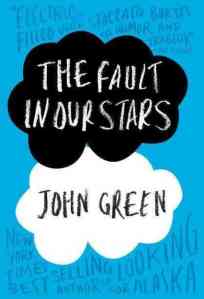 I don’t know why exactly this bothers me. Maybe I’m expecting too much from fiction meant to be escapist entertainment. Earlier this summer I read John Green’s The Fault in Our Stars, a young adult book about a girl with terminal cancer. It’s beautifully written, and handles the subject of death and dying sensitively and thoughtfully. It’s not full of action scenes (though there is romance, apparently a necessary ingredient for young adult novels) but there is humor and pain (and painful humor). It was such a contrast, worrying about losing these characters—both because I cared about them and because there was a real danger that they would be dying.
I don’t know why exactly this bothers me. Maybe I’m expecting too much from fiction meant to be escapist entertainment. Earlier this summer I read John Green’s The Fault in Our Stars, a young adult book about a girl with terminal cancer. It’s beautifully written, and handles the subject of death and dying sensitively and thoughtfully. It’s not full of action scenes (though there is romance, apparently a necessary ingredient for young adult novels) but there is humor and pain (and painful humor). It was such a contrast, worrying about losing these characters—both because I cared about them and because there was a real danger that they would be dying.
I also came across this blog post today, written by middle school English teacher Kristin Robbins Warren, about Literature and Loss. She says that “young adults need to have access to books by trusted authors about death and loss,” and I agree.
Of course, I understand why authors would be reluctant to put their beloved characters in real danger—it’s hard to put all that effort and emotion into creating a character and then lose them again, even for the sake of the story. But it occurred to me that there are some people who often spend a lot of time creating characters they love and then put them into situations in which they might die: roleplayers.
If you play RPGs, you spend a lot of time developing your character, going on adventures, leveling up, collecting better equipment. But (depending on your game master, I suppose) that character might get killed in a battle, or by falling into a pool of acid in the foyer. And in most cases, dead means dead. It’s not like a videogame where you just respawn and start that scene over—nope, it’s time to mourn that one and roll up a new character.
That got me thinking: what if, instead of choosing the outcomes of scenes in a book, the author instead let the outcomes be determined by a game? What if the author didn’t even know, going into a scene, which characters would survive? Is that even possible? I suppose that’s a tiny bit of what Todd Michael Rogers is trying to do with Spell Saga, but in that case there is a finished story—it’s just whether you make it to the end, and how you get there. I pictured instead, somebody sitting down to write a story, and then playing Dread: every time the character had to do something tricky, the author had to pull a piece out of a Jenga tower. Tower collapses? Character dies. Okay, so that might not end up creating a very well-designed plot, but I bet it would be unpredictable.
I don’t have a good solution, really, and I don’t think I’m going to actively seek out books in which major characters die. But I do know it’s something I’ll notice the next time I’m reading a book, like an itch in the back of my brain that I can’t quite scratch: is this character really in danger?
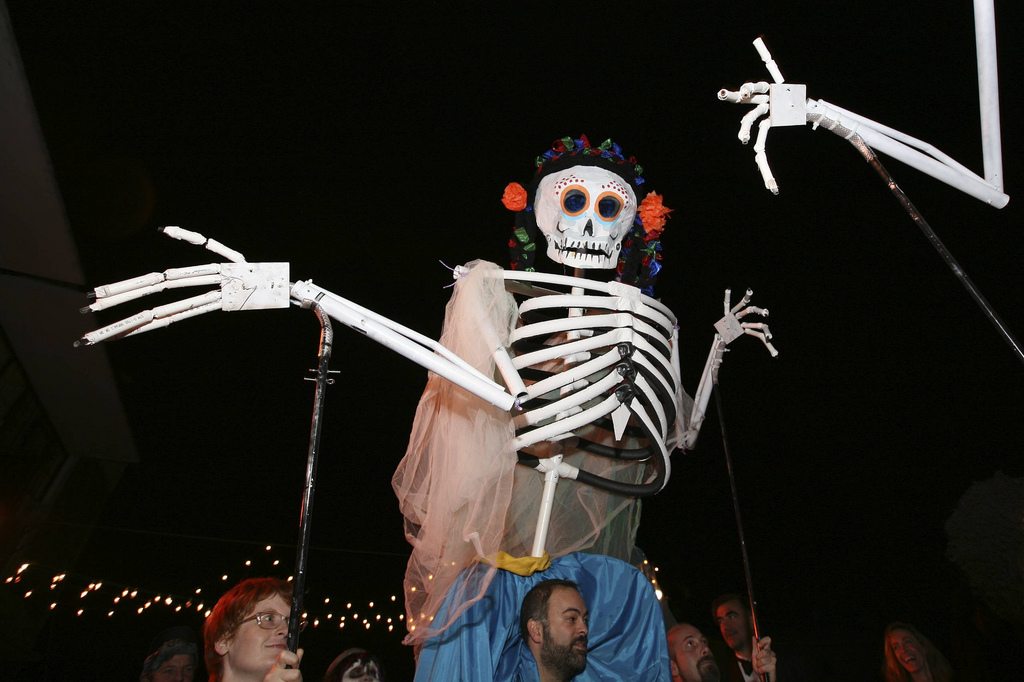

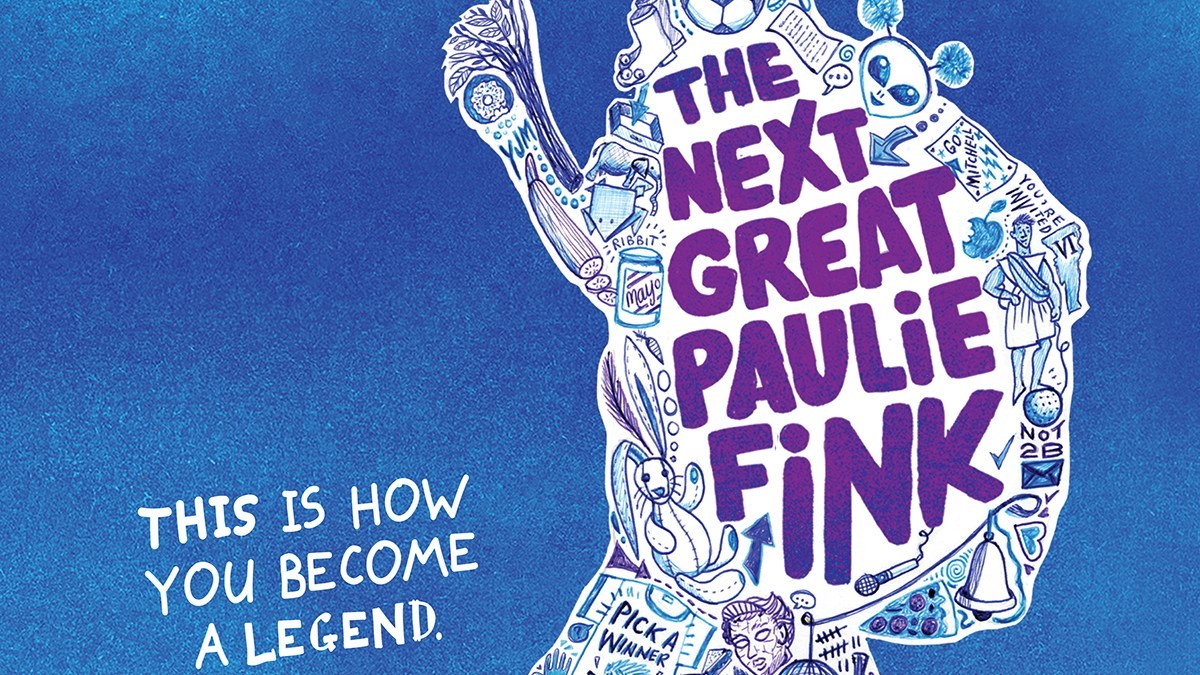


It’s ironic that you would use Dan Krokos as an example. I know Dan, and one of the things he most admires about the George R. R. Martin’s series, A Song of Ice and Fire, is the fact that any character can die at any time. As to his book, The Planet Thieves, the unfortunately reality is that there are limits to what publishers deem acceptable in a middle grade book series. If you’re interested in a book that puts the main characters in real and palpable danger that does if fact actually result in some very serious consequences, I suggest you read Dan Krokos’s new YA book, False Sight. False Sight is the second in a three book series. False Memory is the first book and it is a 2012 Thriller Award winner.
Thanks! I didn’t get into it in my article, but I can see how publishers would push back against kids dying in middle grade books. And I’m not knocking happy endings, either. But I do think there’s something lost when only peripheral characters can actually die or get hurt significantly in some action scene. Or maybe the problem is when we try to put kids into scenes that they couldn’t possibly survive, and then somehow let them survive? Something I’m still pondering.